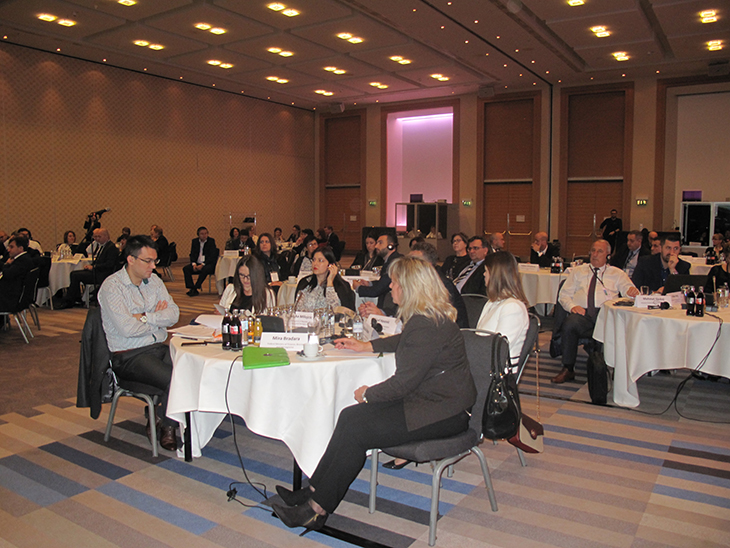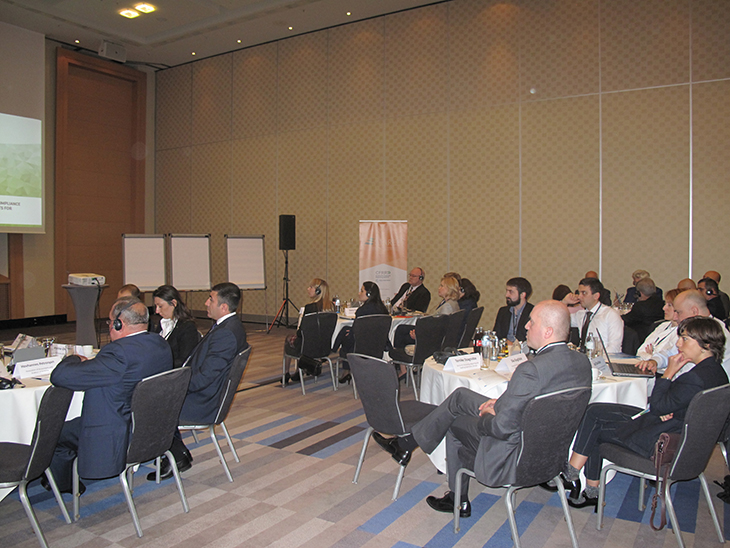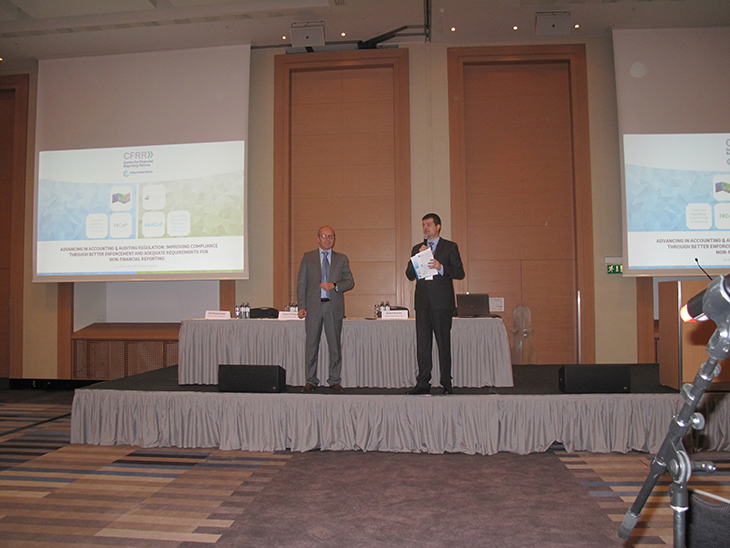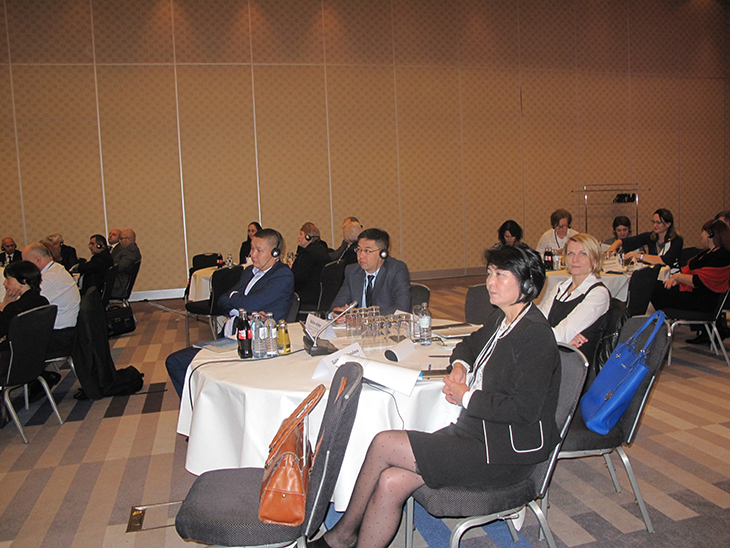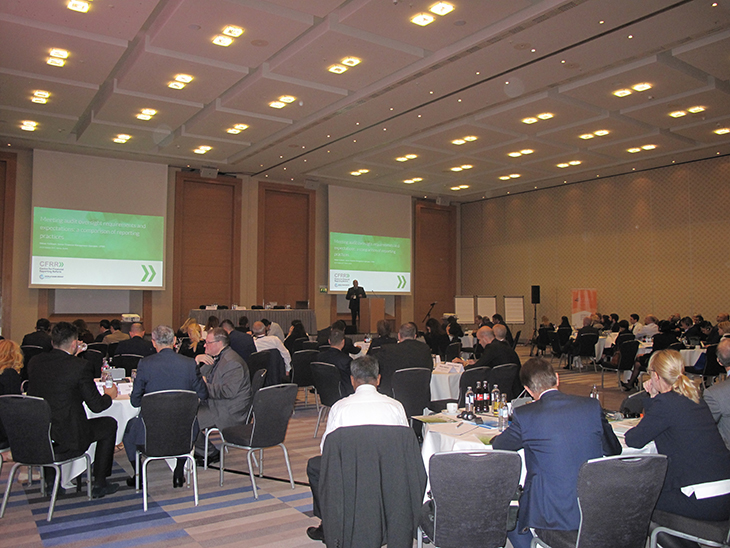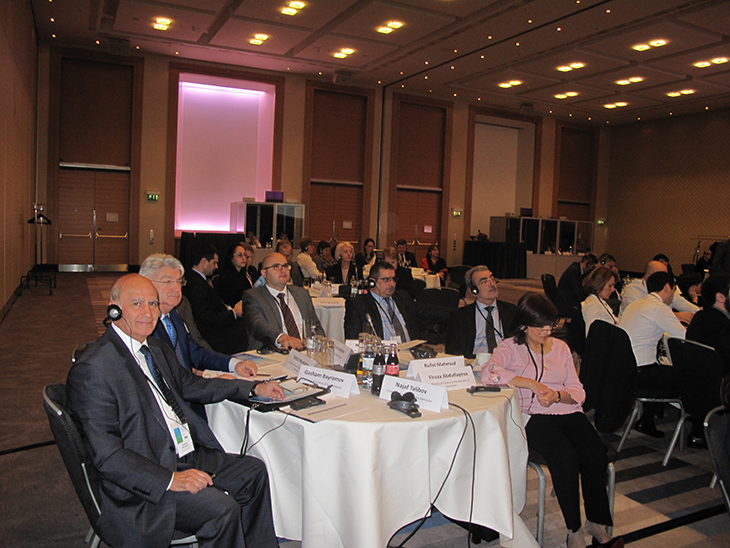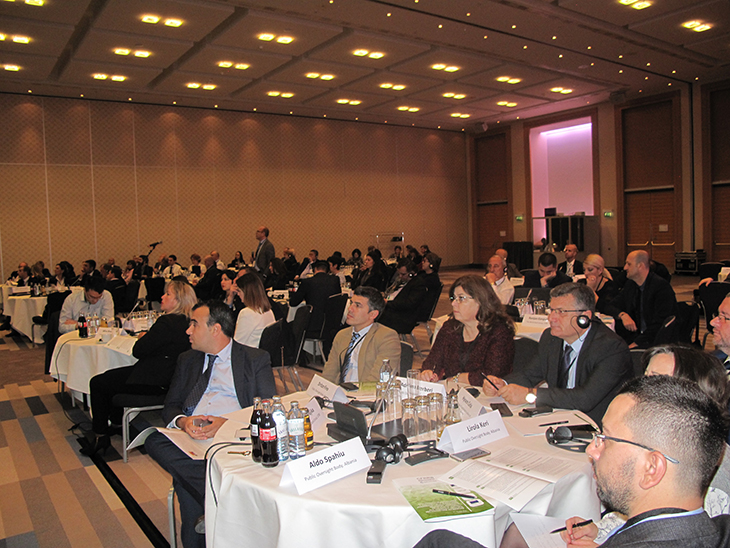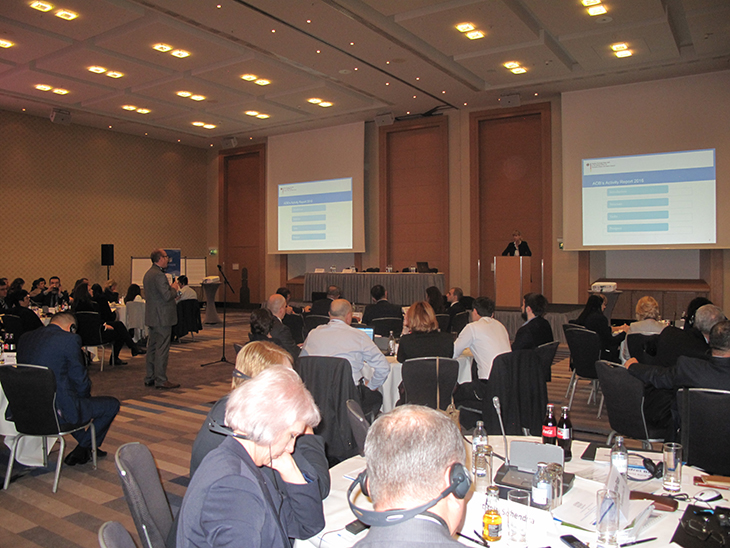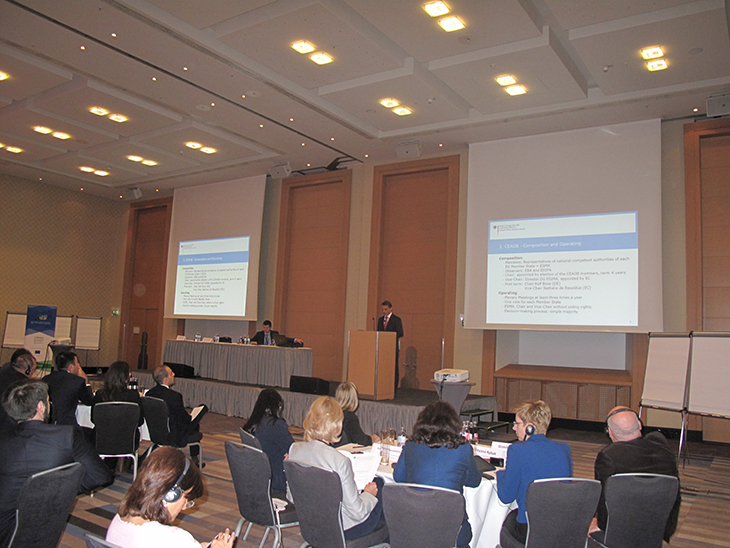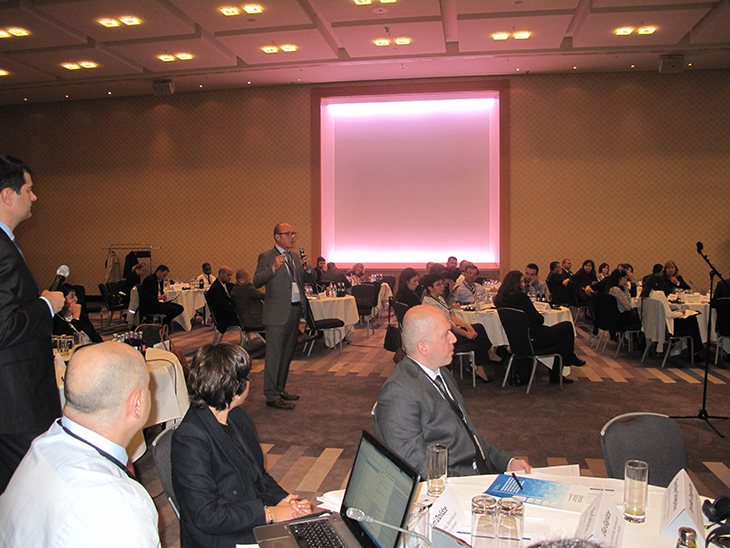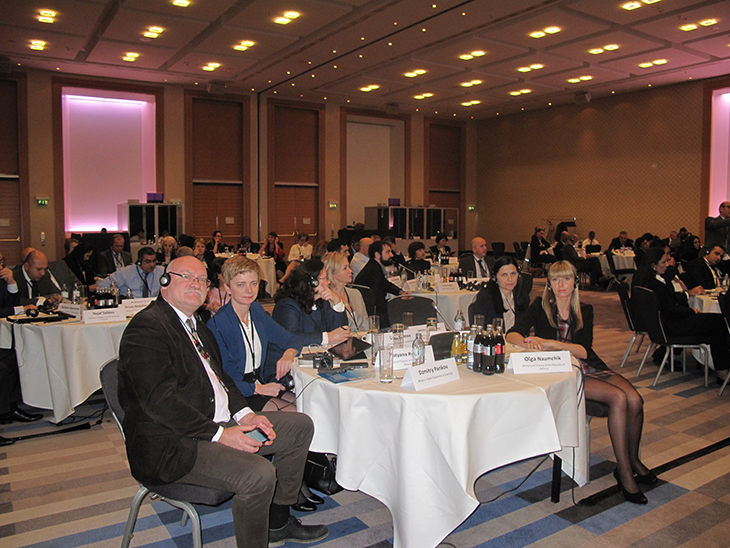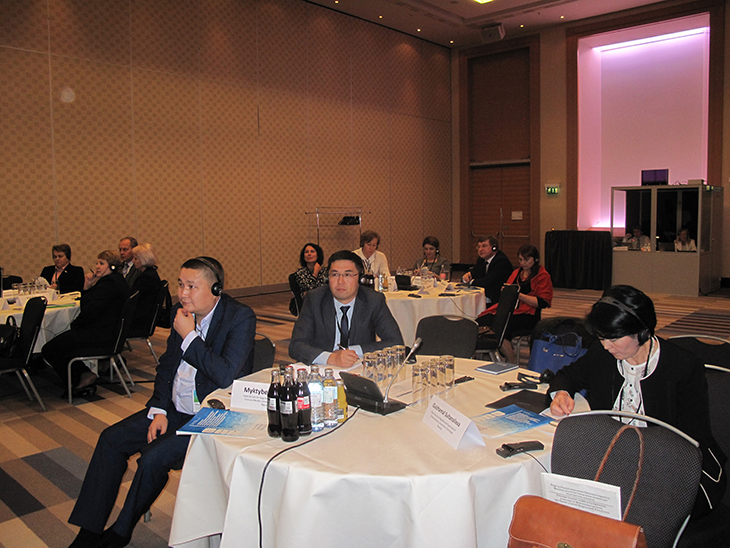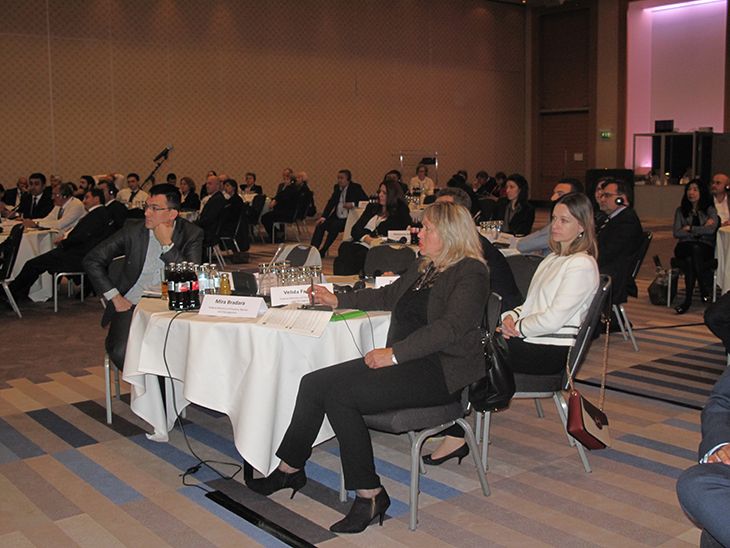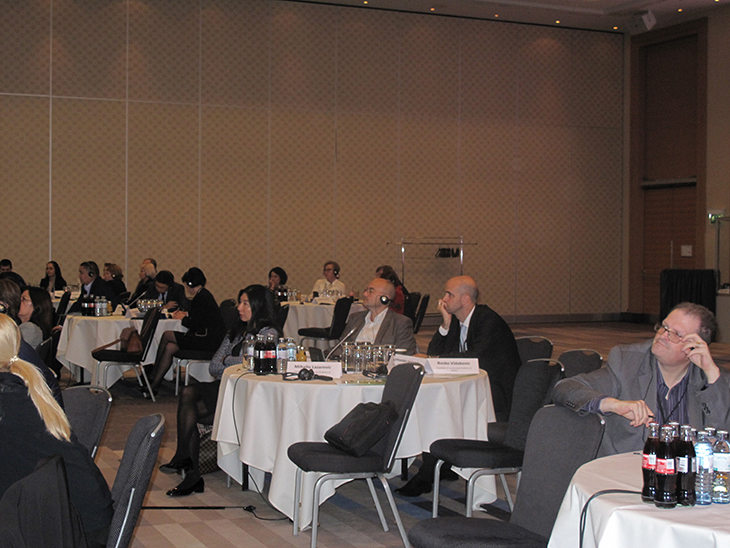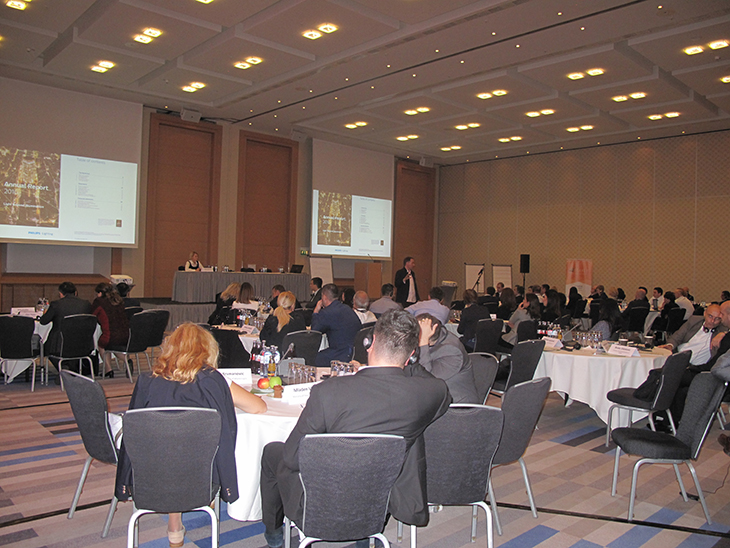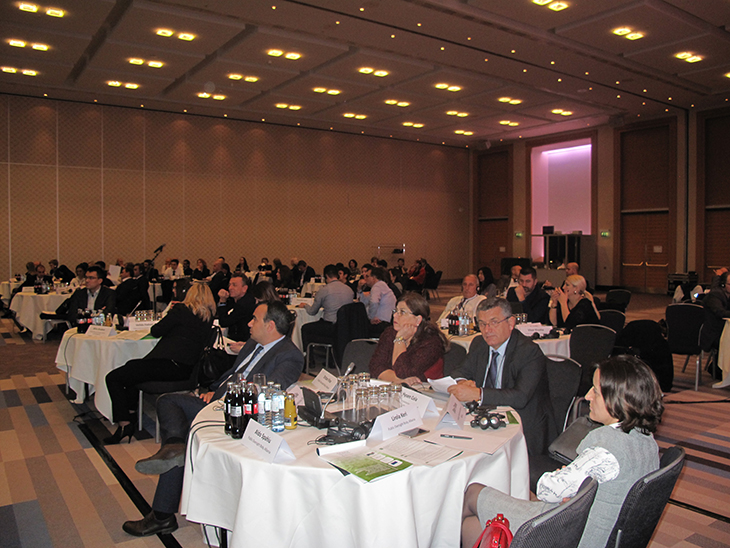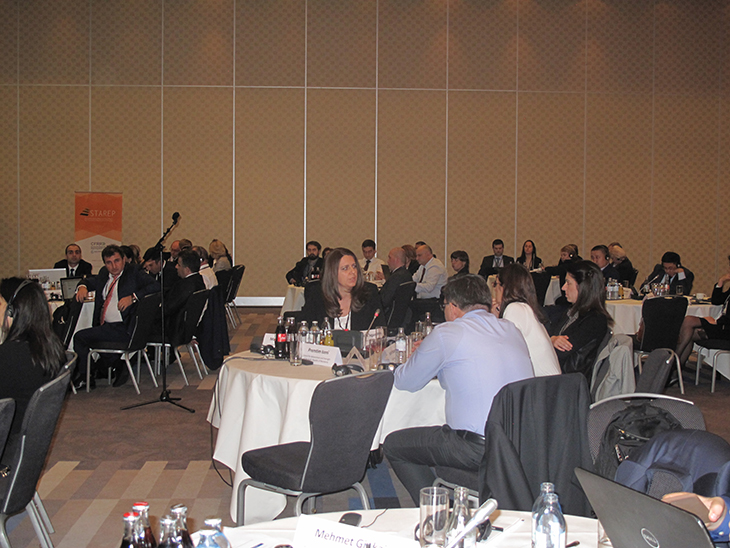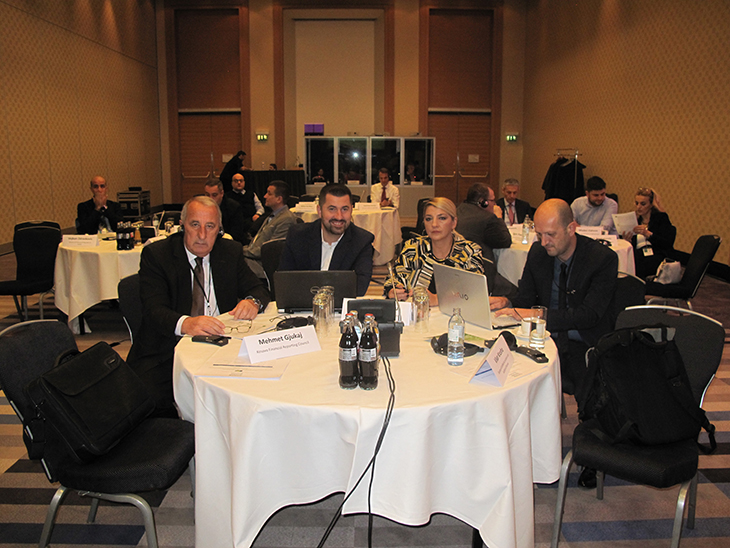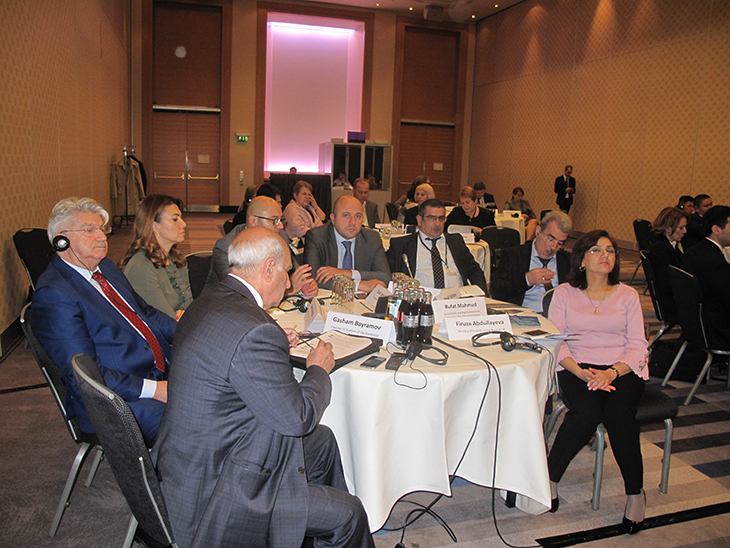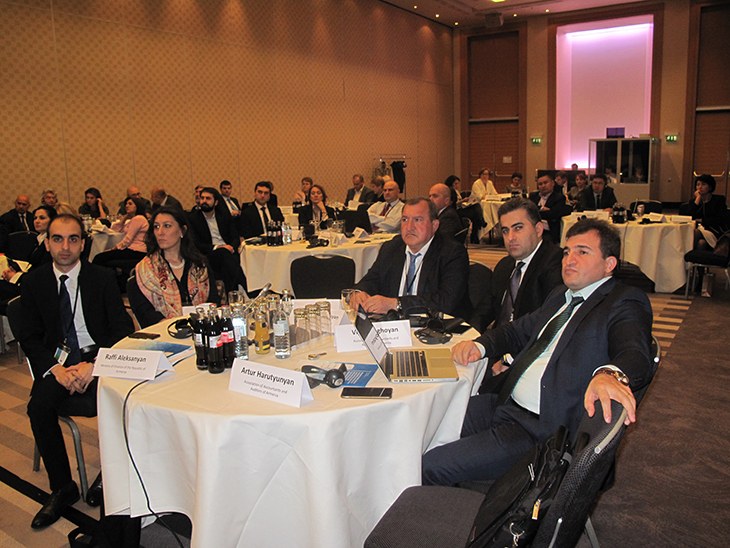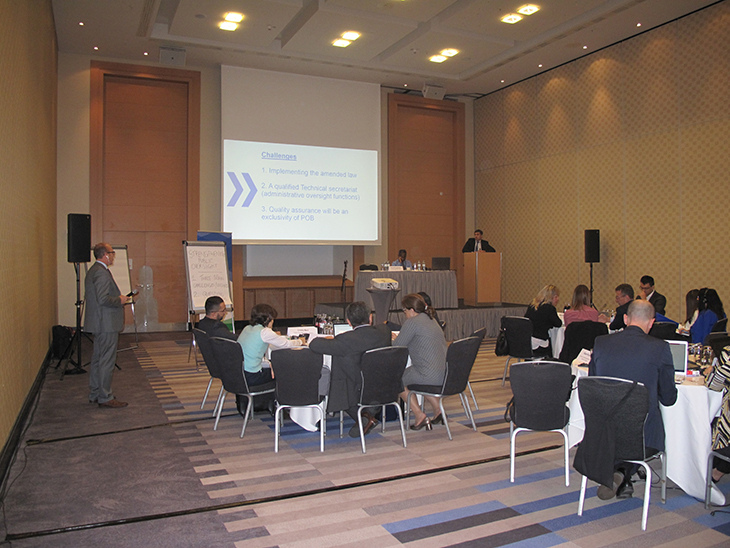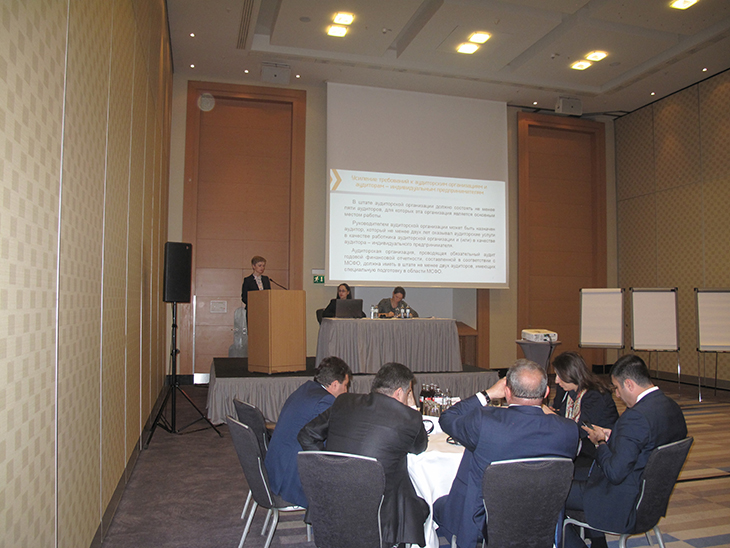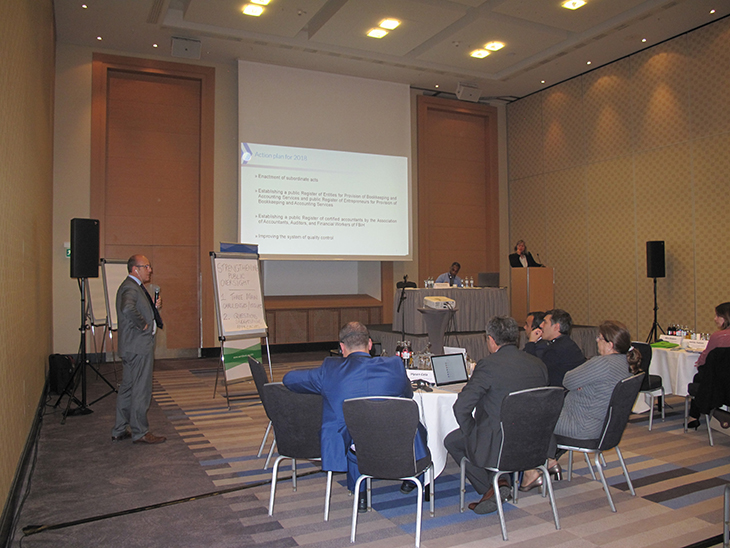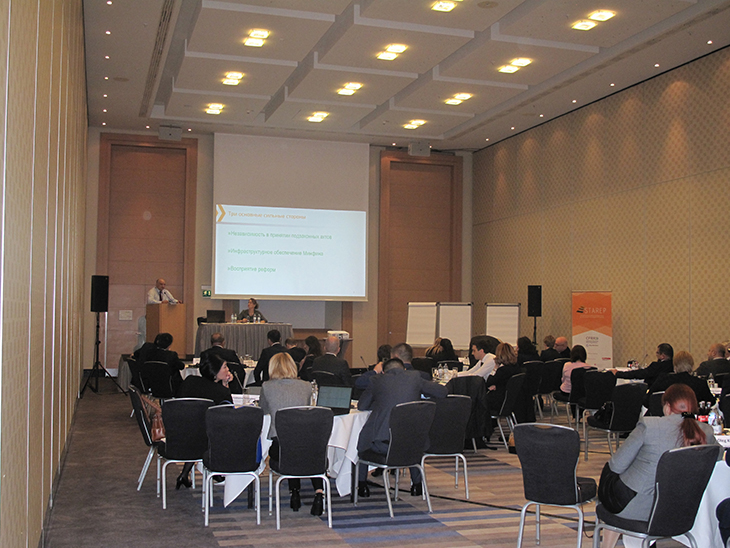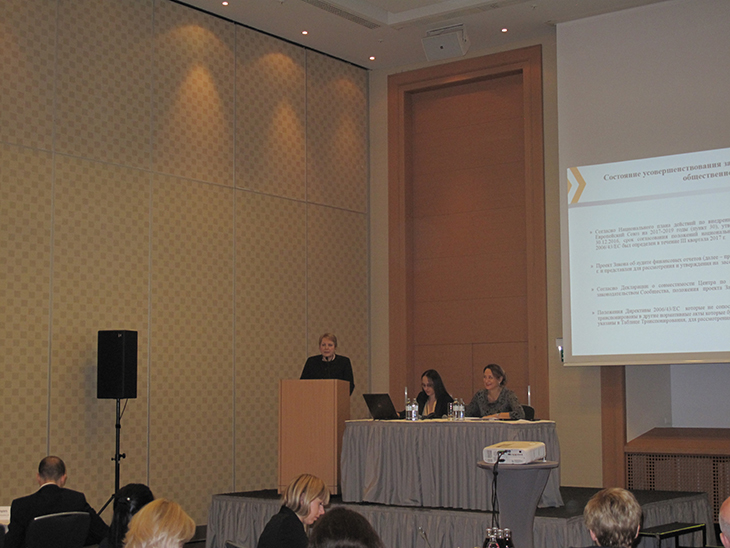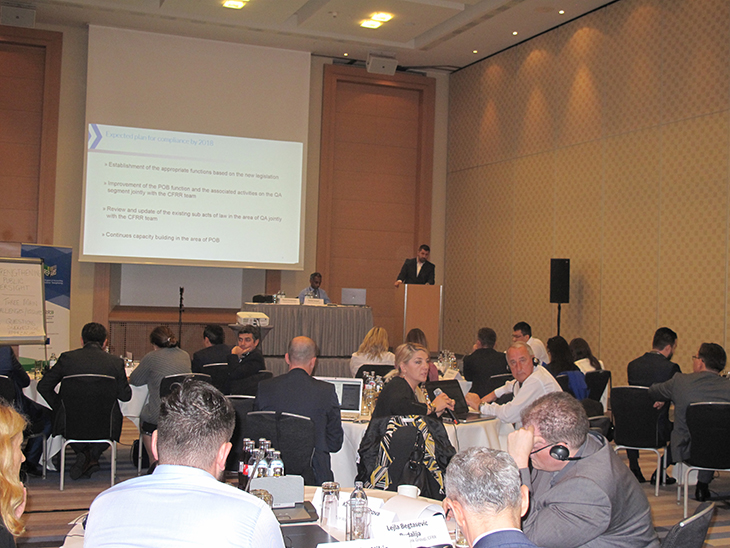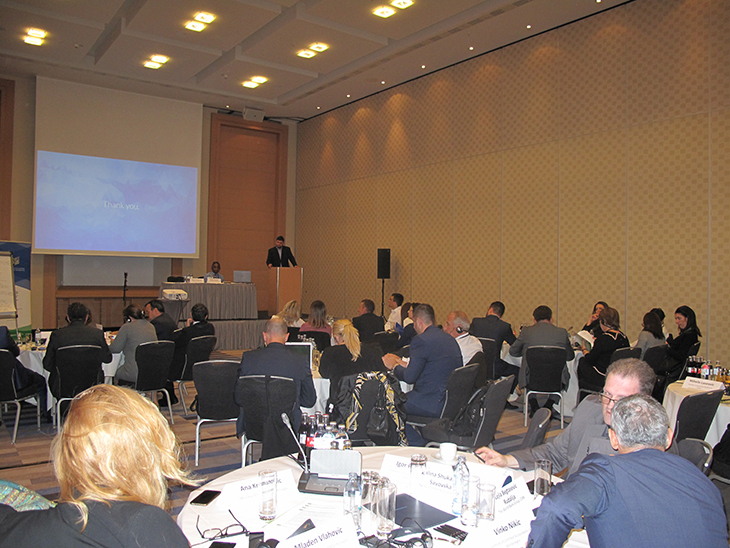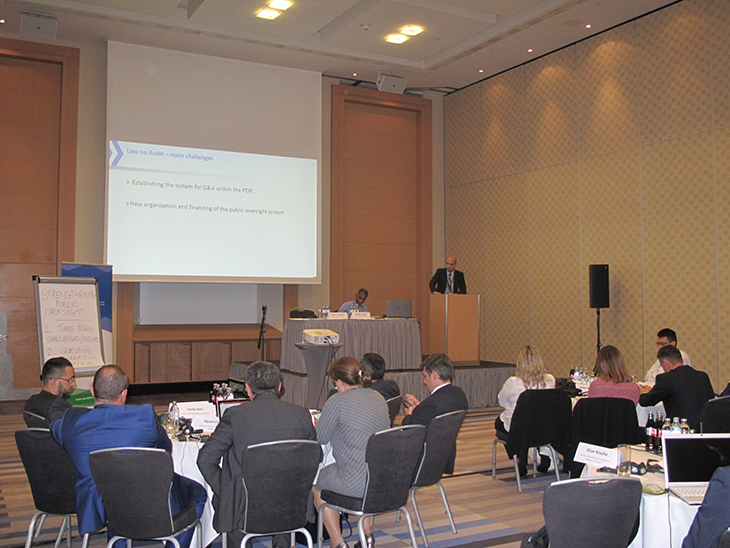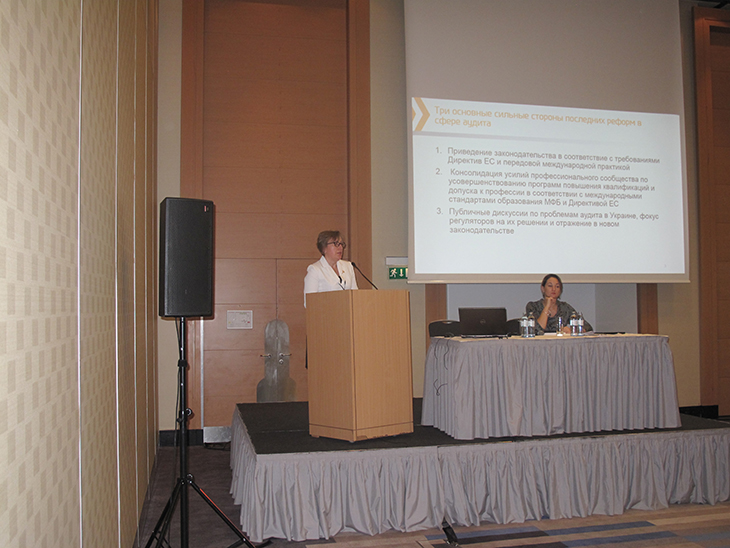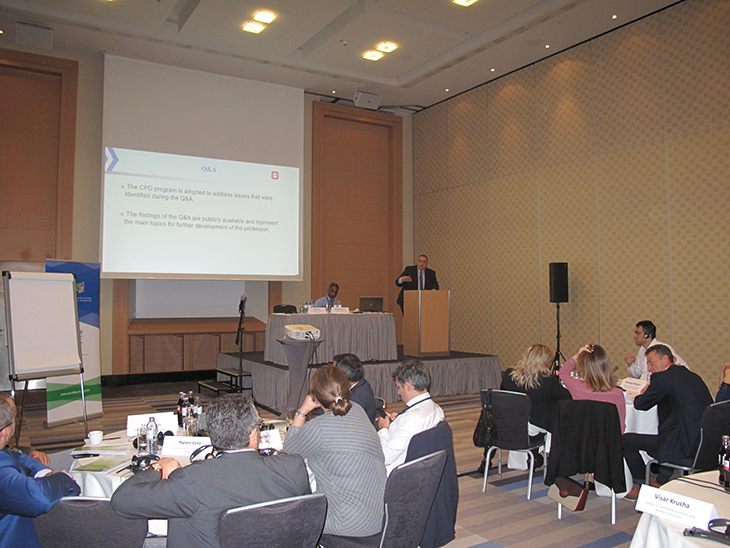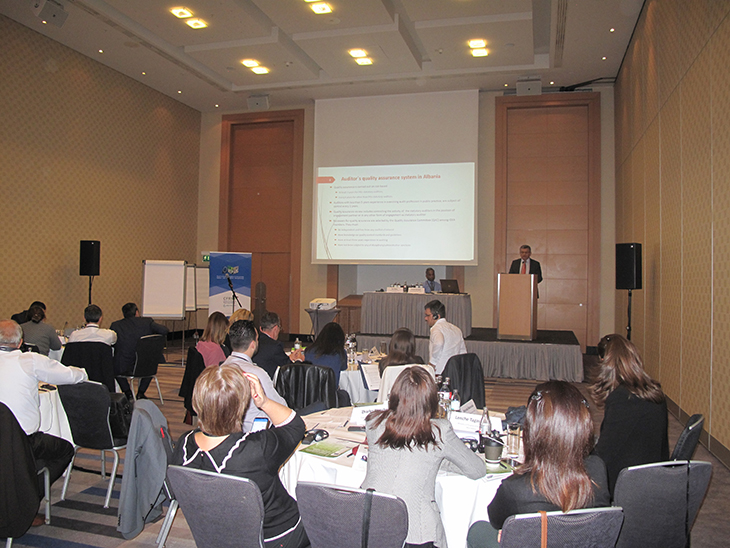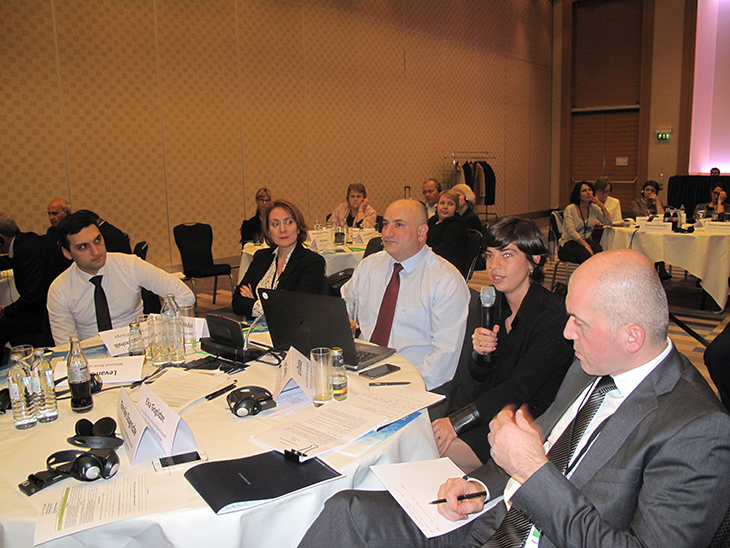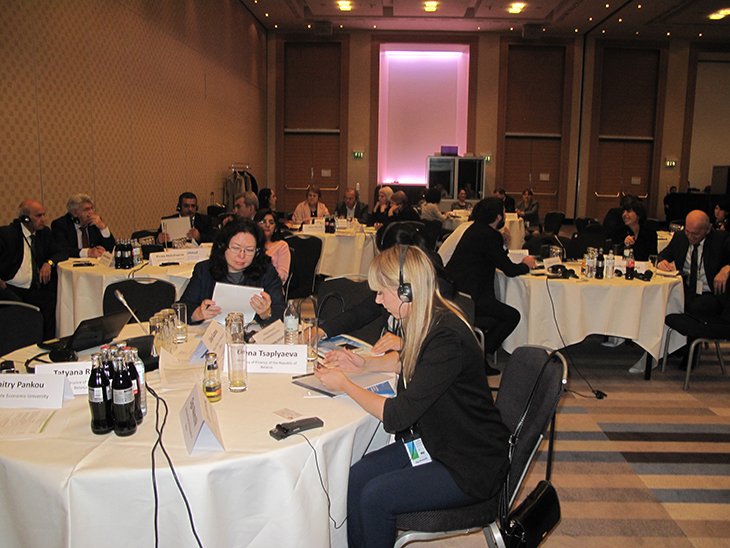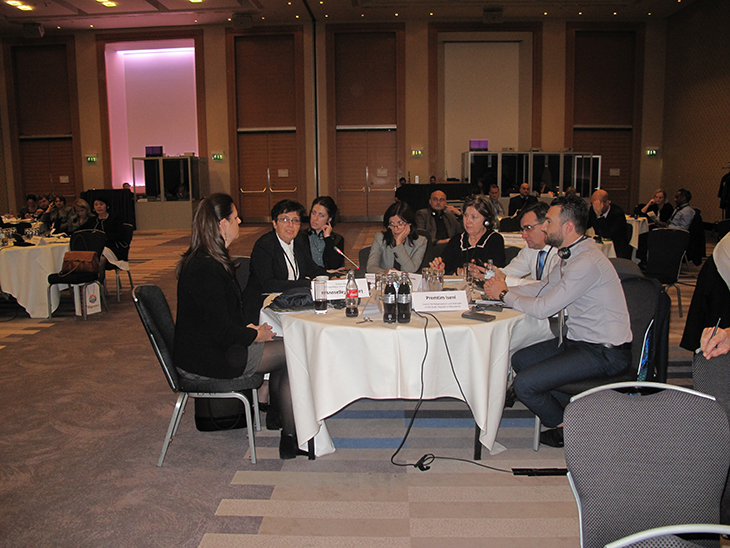A World Bank Centre for Financial Reporting Reform (CFRR) workshop in Vienna on October 24 and 25, 2017, reviewed the role of accounting and auditing regulation and specifically how better enforcement can help improve compliance with audit standards, namely international accounting standards (ISA). It also considered the contribution of non-financial reporting and ensuring adequate requirements are in place.
Workshop participants represented each of the countries of two regional CFRR projects: Armenia, Azerbaijan, Belarus, Georgia, Moldova, and Ukraine as part of Strengthening Auditing and Reporting in the Countries of the Eastern Partnership (STAREP) and Albania, Bosnia & Herzegovina, Kosovo, Macedonia, Montenegro, and Serbia as part of the Road to Europe: Program of Accounting Reform and Institutional Strengthening (EU-REPARIS). Representatives of the Kyrgyz Republic attended as guests as part of the Kyrgyz Audit and Reporting Enhancement Project.
The main objective of the workshop was improve knowledge of the role and practices of audit public oversight and quality assurance systems, including their reporting; and to review the elements of non-financial reporting prepared by companies in the European Union (EU). Key areas which were addressed included:
- An overview of legislative requirements and international benchmarks for reporting by audit oversight bodies and learned how to meet audit oversight requirements and expectations based on a comparison of various reporting practices;
- The facilitation of supervisory convergence, and effective and consistent application of new EU audit legislation - a relatively new but important topic for participants. The main functions and responsibilities of the Committee of European Auditing Oversight Bodies (CEAOB) were explained, including reporting to the general public, cooperation among public oversight boards, and outreach to non-EU countries;
- Germany's Audit Oversight Body outlined their experience of reporting to the general public and provided valuable input on the German system of public oversight and quality assurance;
- An expert presentation on non-financial reporting, future implications, and adding value through non-financial reporting, encouraged regulators of corporate financial reporting to reflect more in their efforts to make well-informed decisions on improvements to accounting and financial reporting regulatory frameworks; and
- The importance of interaction between financial sector supervisors, auditors, and other supervisory authorities, including public oversight bodies, was highlighted as a means to strengthen both financial reporting and prudential reporting, and to reduce information asymmetries. Regular exchanges of information between financial sector supervisors, auditors, and public oversight bodies could enable all involved parties to perform their duties effectively.
STAREP progress in strengthening public oversight
Each STAREP country mapped its progress towards a strengthened system of public oversight. Georgia has adopted new improved legislation, draft laws were recently passed to Parliament for approval in Moldova and Ukraine, and other countries are on the road to developing new improved legislation which will strengthen public oversight. Participants discussed the various challenges that make it difficult to adopt improved legislation and to enforce audit oversight principles in STAREP countries including, for example:
- Identification and motivation of adequately qualified non-practitioners to be involved in the governance of public oversight bodies;
- Lack of adequate financing to enforce the legal requirements;
- Complicated parliamentary procedure to pass a draft law, including possible political interference and lobbying, which increases the risk of failing to pass legislation within the planned timeframe;
- Insufficient local auditor knowledge of European audit regulation, legislation rules and requirements, which leads to negative perceptions of the proposed reforms;
- Operational inflexibilities at various institutions and bodies within the country.
Serbia offered a perspective on their experience, progress, and future plans having started the process earlier than the STAREP countries.
EU-REPARIS progress in aligning public oversight systems with EU requirements
The EU-REPARIS countries each presented the status of reforms to strengthen public oversight systems as well as the main challenges they face. Most countries had passed or were in the process of amending relevant audit legislation to strengthen their public oversight system; none had yet established a functioning public oversight quality assurance system (QAS).
Discussions highlighted the lessons learned and experience gained by EU-REPARIS countries in establishing public oversight systems. These included planning well ahead for the time it takes to pass new laws. One way to address this would be to transpose all the requirements of the EU Statutory Audit Directive, incorporating different dates of effectiveness for different sections of the laws. This would phase in the various requirements as a country’s public oversight board was ready to implement them (recognizing that conformity with EU legislation is only required immediately prior to accession). Direct responsibility for quality assurance of public interest entities by the public oversight body could be delayed until it is ready, with indirect quality assurance continuing to be performed in the interim by professional accountancy organizations.
Peer learning about quality assurance inspection programs
Representatives from professional accountancy organizations in Macedonia, Serbia, Albania, and Kosovo described their organizations’ quality assurance systems including their staffing, methodology, results, and further challenges that lie ahead. A common factor was the importance of the feedback loop in refining the design of quality assurance and professional development systems - inspections can increase the quality of audits if their findings are factored into the design of continuing professional development programs. They highlighted that quality assurance inspections require more than simply checking that audit procedures have been performed and to be of value inspections should be performed only by individuals with a considerable degree of audit experience and expertise. They advised that established quality assurance systems could be used as a basis in developing new national systems, this could help address key issues such as staffing, methodology, procedures, funding, and reporting. Experienced quality assurance reviewers from other professional accountancy organizations or public oversight bodies could also help support the introduction of a QAS.
There was general agreement on the common challenges facing EU-REPARIS countries because of their relatively small size: finding qualified and experienced technical staff from the countries’ relatively small pools of audit professionals; finding wholly independent candidates for public oversight bodies as well as technical staff; finding technical staff and experts with a sufficiently wide range of industry skills to enable them to perform quality assurance of specialized audit engagements; and the challenges associated with making public the results of quality assurance inspections in a manner so as not to reveal the identity of the audited entity where there are only very few statutory audits. There was a suggestion that public oversight bodies in small countries with similar working languages might want to consider working together to overcome these small country challenges including, for example, creating cross-country quality assurance teams. There was also a suggestion that countries may want to make contact with those groups within the Committee of European Auditing Oversight Bodies and International Forum of Independent Audit Regulators who specifically seek to address problems faced by public oversight bodies of small countries; perhaps with the support of EU-REPARIS.
The key takeaways and next steps
Participants were grateful for the opportunity to interact with international experts, and to share and learn from each other. The event helped confirm the reform progress being made. There was considerable interest in greater cooperation among countries participating in regional projects on audit quality assurance and oversight. Topics of interest for future CFRR events included systems of investigations and sanctions for auditors, and detailed methodology for audit quality assurance inspections.
Disclaimer: This webpage was created and maintained with the financial support of the European Union. Its contents are the sole responsibility of CFRR and do not necessarily reflect the views of the European Union.
